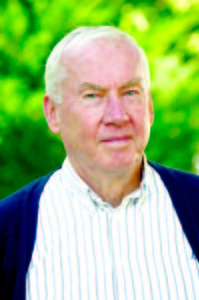Small World: Mandela and Company
By Henry Precht
BN Columnist
The greatness of Nelson Mandela’s achievements has been fully celebrated in the memorial events since his death. One hundred or so heads of state went to his funeral; millions of words have been written about his life.
One aspect, however, has been neglected, at least as far as I know: How was it that his life and leadership far surpassed in the minds of almost everyone the accomplishments of other revolutionary leaders? What qualities did he display that they lacked? Why was he universally — with a few mean exceptions — loved and honored while the others who also stood up to harsh authority were loved only by their partisans and despised by many others?
Let’s try out some comparisons.
Fidel Castro. Like Mandela, Castro was a fighter before he was a ruler. Like Mandela, he took an uncompromising position in support of the weakest in his society. But Mandela changed. He held out the hand of inclusion and cooperation to South African whites; Castro would accept his Cuban enemies only after their submission to his rule. Both men were, at one time or another, communists, a creed anathema to much of the world. Mandela dropped out of the party; Castro became more fervent and allied himself with America’s enemy, the USSR. Not a path to popularity with his northern neighbor.
Mao Zedong. Another communist — no hope of wide popularity for him or for his other revolutionary comrades in ideology, Ho Chi Minh or Kim Il Sung and descendants. Moreover, none of them mellowed much although Mao had Nixon to dinner and thereby gained a point or so.
Ayatollah Khomeini. Andy Young once praised him as “another Gandhi.†He did lead one of history’s most massive revolutions after, like Mandela, 25 years in exile. Part of his success was that he was a man esteemed by his followers in religious terms, a man whose simple life of rice and tea and sitting on the floor contrasted sharply with the pomp and foreign dependency of his opponent the Shah. The world, however, seems to prefer a revolutionary with a smile — one like Mandela with a taste for good times, smart clothes and the high life. Mandela showed kindness to his opponents; Khomeini had his executed.
Mahatma Gandhi and Martin Luther King. These two come closest to Mandela in their effect on history. Non-violence was a major contribution to the struggle for freedom. Gandhi was, like Khomeini, perhaps too different from Western norms of dress and behavior to become a revered figure. King’s crusade drew strength from American’s sense of guilt over racism. Both were great men who easily stand in the same rank as Mandela.
Yasser Arafat. Beginning his career also as a fighter, the acts of terrorism he was responsible for condemned him to obloquy although they gained recognition for the Palestinian cause as a movement that had to be recognized. (Margaret Thatcher called Mandela’s party, the ANC, a terrorist group.) Mandela showed Arafat respect, which hurt the South African in the opinion of Israelis. The Palestinian changed from fighter into a peacemaker on the White House lawn shaking hands with his opponent, Israeli Prime Minister Rabin. In the eyes of many Israelis, however, Arafat remained the enemy and they waged a campaign of vilification against him. Two other problems afflicted him: He was ill shaven and unattractive; Mandela was handsome. Arafat was a failure at leading a new government, which was accused of corruption and ineptitude. Mandela left those burdensome chores after one term as president.
With the exception of Gandhi and King, all of these men contrast with Mandela on one important point: Mandela found a nation oppressed and brought it freedom. His competitors, men of compelling moral authority, nevertheless changed one form of tyranny for another.
The world loves a leader who shows magnanimity and forgiveness, who is shrewd in dealing with adversaries, who comes equipped with qualities — humor, grace, intelligence — that excite our admiration and who has the humility to stand as one of us. Nelson Mandela was one of those rare humans.
Henry Precht is a retired Foreign Service Officer.


